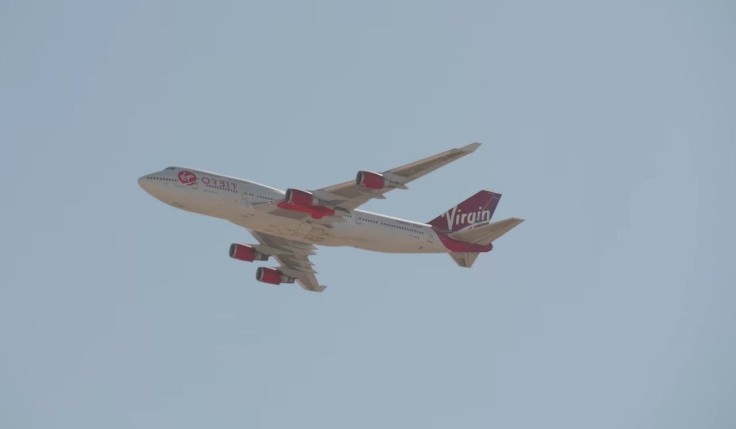
Virgin Orbit, earlier this morning, has launched their own developed rocket named LauncherOne on to the lower part of the Earth's orbit. This also marks the very first successful launch that was done by the company itself.
CNN Business has reported that the rocket that was launched is being sized at about 70 feet in total. It was first attached on a Boeing 747 aircraft which then afterwards saw its detachment from the plane itself. The carrier aircraft was given the moniker 'Cosmic Girl' and was the one responsible for bringing the rocket upwards to the skies of the planet's atmosphere.
LauncherOne's Flight - Courtesy of 'Cosmic Girl'
The flight took place in California at around 10:30am PT. LauncherOne was placed on the left wing of Cosmic Girl, before and during the moment that the aircraft flew out of the Pacific Ocean and then has emerged on to the skies. The rocket motor was then geared up to 17,000 miles per hour - an enormous amount of speed in which has brought the rocket on to the actual lower portion of the Earth's orbit.
The rocket was launched by the company in partnership and under the supervision of the National Aeronautics and Space Administration or NASA as all people know. It was one of the highlights for the agency's Educational Launch of Nanosatellites, or the ELaNa program, which provides opportunities for various high school and college students to showcase their own designed and assembled small satellites in which was being monetized and paid by NASA themselves.
Also Read : New 3D Printing System Proposed by Researchers to Provide More Cost Efficient, Easier Printing
The launch of the rocket then paved the way for the nine small satellites made by those students to be placed on to the lower part of the Earth's orbit as being carried upon by the Virgin Orbit rocket.
Some of the satellites were hailed from different schools and universities across the US, including small satellites from the University of Colorado which was designed for temperature-monitoring purposes, a satellite which is capable of detecting such radiation by students from the University of Louisiana, and a University of Central Florida developed small satellite which could be responsible for sorting and finding out how the tiny particles in space collides and clashes with one another.
Virgin Orbit's Success
The mission which was dubbed as a successful one has then put Virgin Orbit on to a category where it is the third one to join in - the category for "New Space" companies, which are those startups that are inclined and dedicated on to revolutionizing and incorporating some of the most advanced technologies to further explore the different astronomical aspects within and outside the reach of the Earth, such as its own orbit.
As reported by tech and science news website Tech Crunch, Virgin Orbit saw their detachment from its mother company Virgin Galactic's existing missions and projects by then, to primarily give their full attention for space explorations which are solely developed and created for orbital launches that cater release of some small payloads, such as the small satellites from today's launch.









